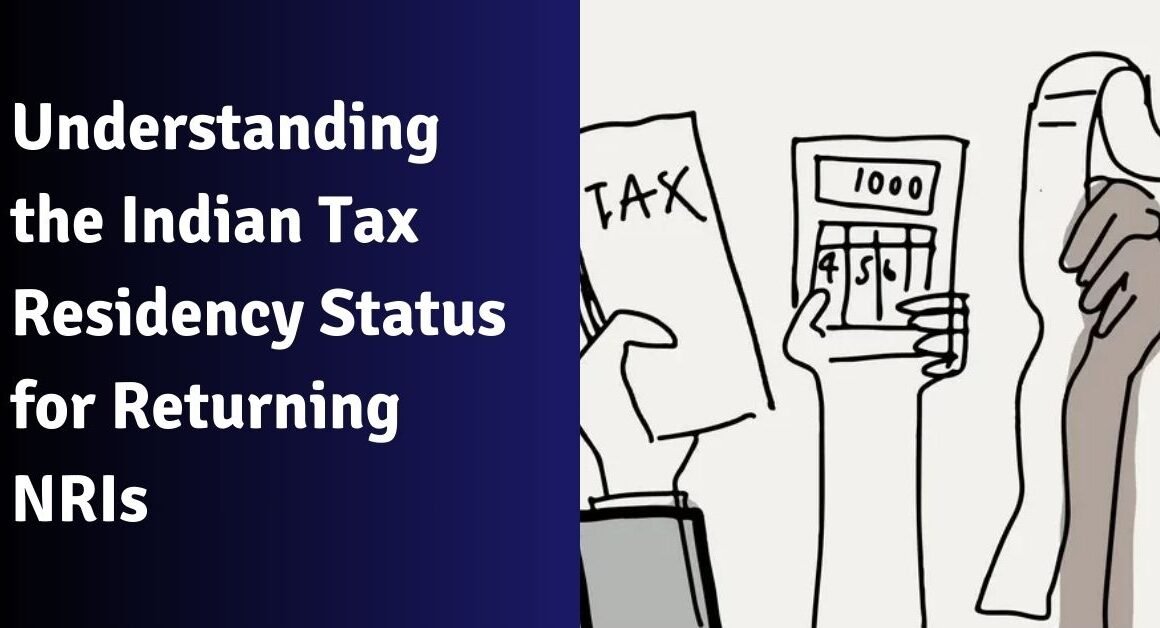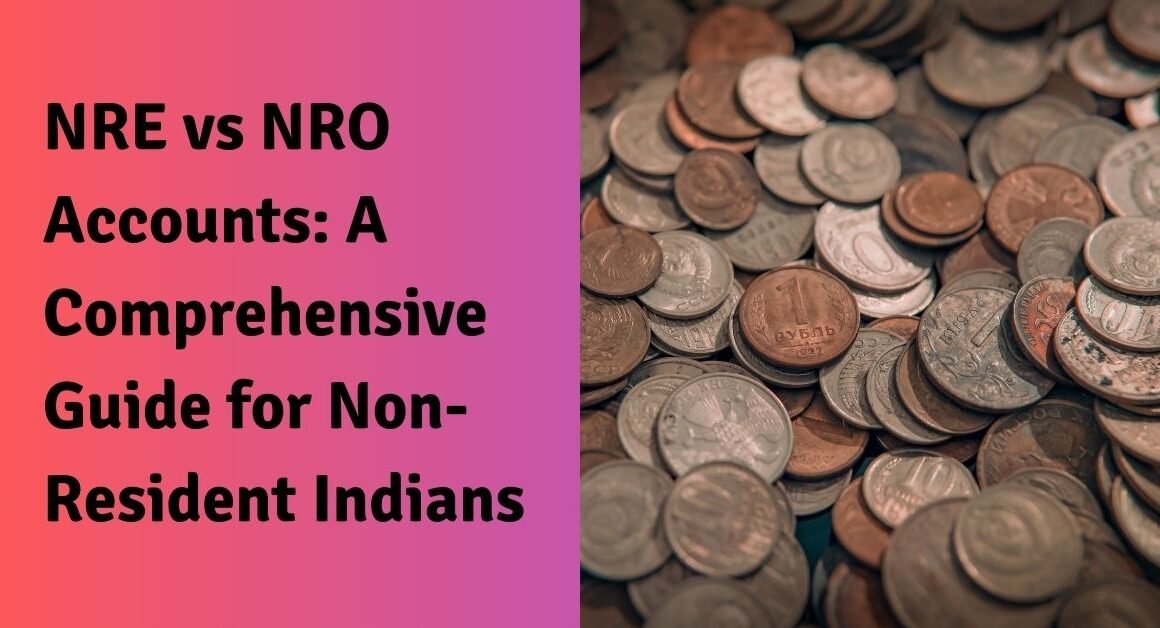How to Maintain NRI Status after Returning to India: Rules and Regulations
For many Non-Resident Indians (NRIs), the decision to return to India is a significant life event that requires careful planning, especially when it comes to maintaining their NRI status. This status offers various financial benefits and privileges, making it crucial to understand the rules and regulations governing its retention. In this comprehensive guide, we’ll explore the intricacies of maintaining NRI status after returning to India, helping you navigate the complex landscape of residency rules and financial regulations. Understanding NRI Status Before delving into the maintenance of NRI status, it’s essential to grasp what constitutes an NRI. According to Indian law, an NRI is an Indian citizen who resides outside India for employment, business, or other purposes, with the intention of staying abroad for an indefinite period. This status is primarily determined by the number of days an individual spends in India during a financial year. The 182-Day Rule The cornerstone of NRI status is the 182-day rule. To maintain NRI status, an individual must not stay in India for more than 182 days in a financial year (April 1 to March 31). This rule forms the basis for determining residency status and has significant implications for taxation and financial matters. However, the situation becomes more nuanced when an NRI returns to India with the intention of staying for an extended period. In such cases, additional rules come into play to determine residency status. The Look-Back Period For NRIs returning to India, the government introduced a look-back period to provide some flexibility. If an individual has been an NRI for at least nine out of the ten previous financial years, or has been in India for less than 729 days during the seven preceding financial years, they can maintain NRI status even if they exceed the 182-day limit in the current financial year. This provision allows returning NRIs to stay in India for up to 181 days without losing their NRI status, provided they meet the look-back criteria. It’s a crucial consideration for those planning an extended stay in India while still wishing to retain their NRI benefits. Employment Considerations NRIs returning to India for employment purposes face additional considerations. If an individual takes up employment in India immediately upon return, they may be considered a resident for tax purposes from the date of their arrival. This can have significant implications for their tax liability and financial planning. To maintain NRI status while working in India, it’s essential to structure employment arrangements carefully. Some options include working on short-term assignments, consultancy roles, or maintaining primary employment with an overseas entity while working in India on deputation. Financial Implications of NRI Status Maintaining NRI status has several financial implications that make it an attractive proposition for many returnees: Strategies for Maintaining NRI Status For those keen on retaining their NRI status after returning to India, several strategies can be employed: Challenges and Considerations While maintaining NRI status offers numerous benefits, it also comes with challenges. These may include: Conclusion Maintaining NRI status after returning to India requires careful planning, meticulous record-keeping, and a thorough understanding of the rules and regulations. While it offers significant financial benefits, it also demands commitment and may involve personal trade-offs. By staying informed, seeking professional advice, and strategically planning your affairs, you can navigate this complex landscape successfully, enjoying the best of both worlds – a connection to your home country and the financial advantages of NRI status. FAQs: Disclaimer: The information provided here is for educational and informational purposes only and should not be construed as financial, legal, or tax advice. Consult with a qualified professional before making any investment decisions. We do not accept any liability for errors or omissions in this information nor any direct, indirect, or consequential losses arising from its use.
Mutual Fund Investment Options for NRIs: What You Need to Know?
As a Non-Resident Indian (NRI), you may be seeking ways to invest in the Indian market and capitalize on its growth potential. Mutual funds offer an excellent avenue for NRIs to diversify their investment portfolio and potentially earn attractive returns. This comprehensive guide will explore the various mutual fund investment options available to NRIs, along with important considerations and regulations you should be aware of. Understanding Mutual Funds for NRIs Mutual funds are investment vehicles that pool money from multiple investors to invest in a diversified portfolio of stocks, bonds, or other securities. For NRIs, investing in Indian mutual funds can be an effective way to participate in the country’s economic growth while managing risk through diversification. NRIs can invest in most mutual fund schemes available to resident Indians, with a few exceptions. These investments can be made through various NRI account types, including Non-Resident External (NRE) accounts, Non-Resident Ordinary (NRO) accounts, and Foreign Currency Non-Resident (FCNR) accounts. Types of Mutual Funds Available to NRIs Investment Process for NRIs To invest in Indian mutual funds, NRIs need to follow a specific process: Taxation of Mutual Fund Investments for NRIs Understanding the tax implications of mutual fund investments is crucial for NRIs: Repatriation of Mutual Fund Investments NRIs can repatriate their mutual fund investments and returns, subject to certain conditions: Investments made through NRE accounts are fully repatriable. Investments made through NRO accounts have repatriation limits as per RBI guidelines. Capital gains and dividends from mutual fund investments can be repatriated, subject to applicable taxes. Risks and Considerations While mutual funds offer numerous benefits, NRIs should be aware of potential risks: Conclusion Mutual funds present a viable investment option for NRIs looking to participate in India’s growth story. By understanding the various types of funds available, the investment process, tax implications, and associated risks, NRIs can make informed decisions that align with their financial goals. As with any investment, it’s crucial to conduct thorough research, consider seeking professional advice, and regularly review your portfolio to ensure it remains aligned with your objectives. FAQs: Disclaimer: The information provided here is for educational and informational purposes only and should not be construed as financial, legal, or tax advice. Consult with a qualified professional before making any investment decisions. We do not accept any liability for errors or omissions in this information nor any direct, indirect, or consequential losses arising from its use.
Understanding the Double Taxation Avoidance Agreement (DTAA) for NRIs
As a Non-Resident Indian (NRI), navigating the complex landscape of international taxation can be a daunting task. One crucial aspect that every NRI should be familiar with is the Double Taxation Avoidance Agreement (DTAA). This comprehensive agreement plays a pivotal role in ensuring that individuals are not taxed twice on the same income in different countries. In this blog, we’ll delve into the intricacies of DTAA and its significance for NRIs. What is DTAA? The Double Taxation Avoidance Agreement is a bilateral treaty between two countries designed to prevent double taxation of income earned in one country by a resident of another country. For NRIs, this agreement is particularly important as it helps in managing tax liabilities across multiple jurisdictions. India has signed DTAAs with over 80 countries, including popular destinations for NRIs such as the United States, United Kingdom, Canada, and the United Arab Emirates. The primary objective of DTAA is to promote international trade and investment by eliminating the burden of double taxation. It achieves this by clearly defining which country has the right to tax specific types of income and providing mechanisms for tax credits or exemptions. Key Benefits of DTAA for NRIs One of the most significant advantages of DTAA for NRIs is the prevention of double taxation. Without such an agreement, an NRI might end up paying taxes on the same income in both their country of residence and in India. This could lead to a substantial reduction in net income and act as a deterrent to international work and investment. Moreover, DTAAs often provide for lower tax rates on certain types of income. For instance, many DTAAs stipulate reduced withholding tax rates on dividends, interest, and royalties. This can result in significant tax savings for NRIs with investments or business interests in India. Another crucial benefit is the provision of tax credits. Under most DTAAs, if an NRI pays tax on a particular income in one country, they can claim a credit for that tax paid when filing their tax return in the other country. This mechanism ensures that the effective tax rate doesn’t exceed the higher of the two countries’ tax rates. How DTAA Works for Different Types of Income The application of DTAA varies depending on the type of income. Let’s explore how it works for some common income sources for NRIs: Employment Income Generally, if an NRI works in a foreign country, their salary is taxable in that country. However, if they perform work in India for more than 183 days in a financial year, that portion of their income may be taxable in India as well. The DTAA helps determine which country has the primary right to tax this income and how to avoid double taxation. Rental Income If an NRI owns property in India and earns rental income, this income is typically taxable in India. The DTAA may provide methods to claim a credit for this tax in the country of residence. Interest Income Interest earned on NRE (Non-Resident External) accounts is usually tax-free in India. However, interest from other sources may be taxable. The DTAA often provides for reduced withholding tax rates on interest income. Capital Gains The taxation of capital gains can be complex under DTAA. Generally, gains from the sale of immovable property are taxable in the country where the property is located. For movable property, the right to tax often lies with the country of residence. Claiming DTAA Benefits To avail the benefits of DTAA, NRIs need to follow specific procedures. This typically involves obtaining a Tax Residency Certificate (TRC) from the tax authorities of their country of residence. The TRC serves as proof of tax residency and is crucial for claiming DTAA benefits in India. Additionally, NRIs may need to submit Form 10F, which provides additional information not covered in the TRC. It’s important to note that the process and requirements may vary depending on the specific DTAA and the type of income involved. Challenges and Considerations While DTAAs offer significant benefits, they can also be complex to navigate. The interpretation of these agreements can sometimes be subjective, leading to potential disputes between tax authorities. Moreover, DTAAs are periodically updated, and keeping track of these changes is crucial for accurate tax planning. Another challenge is the concept of “tie-breaker” rules in cases where an individual could be considered a tax resident of both countries. These rules help determine which country has the primary right to tax the individual’s global income. It’s also worth noting that while DTAAs prevent double taxation, they don’t necessarily result in no taxation. The goal is to ensure that the tax paid doesn’t exceed the higher of the two countries’ tax rates for that particular type of income. Conclusion For NRIs, understanding and leveraging the Double Taxation Avoidance Agreement is crucial for effective tax planning and compliance. While the DTAA provides a framework to avoid double taxation and offers potential tax savings, its application can be complex. Given the intricacies involved and the potential financial implications, NRIS should consult with tax professionals who are well-versed in international taxation and the specific DTAAs relevant to their situation. By staying informed about DTAA provisions and seeking expert guidance, NRIs can optimize their tax positions, ensure compliance with tax laws in multiple jurisdictions, and make the most of their global earnings and investments. FAQs: Disclaimer: The information provided here is for educational and informational purposes only and should not be construed as financial, legal, or tax advice. Consult with a qualified professional before making any investment decisions. We do not accept any liability for errors or omissions in this information nor any direct, indirect, or consequential losses arising from its use.
Navigating Social and Cultural Adjustments for NRIs Returning to India
As an Non-Resident Indian (NRI) planning to return to India after years abroad, you’re likely filled with a mix of excitement and apprehension. While the prospect of reuniting with family and reconnecting with your roots is enticing, the journey of reintegration comes with its own set of challenges. This article explores the social and cultural adjustments that returning NRIs often face and provides insights on how to navigate this transition smoothly. The Initial Euphoria and Reality Check Many NRIs experience an initial period of euphoria upon their return. The familiar sights, sounds, and smells of home can be overwhelmingly nostalgic. However, this honeymoon phase often gives way to a reality check as the day-to-day challenges of living in India become apparent. One of the first hurdles is adapting to the pace of life. Depending on where you’ve been living, you might find that things move either much faster or slower than you’re accustomed to. The concept of “Indian Standard Time” might take some getting used to, as punctuality is often viewed differently than in Western countries. Navigating Bureaucracy and Paperwork Dealing with government offices and bureaucratic procedures can be a significant source of frustration for returning NRIs. From obtaining an Aadhaar card to transferring your overseas finances, you’ll likely encounter a fair share of red tape. It’s essential to arm yourself with patience and, when possible, seek assistance from those familiar with the system. You may like to read: Navigating the Emotional and Practical Challenges of NRIs Moving Back to India Readjusting to Family Dynamics Family plays a central role in Indian society, and returning NRIs often find themselves navigating complex family dynamics. After years of independence abroad, you might feel overwhelmed by the level of involvement your extended family expects to have in your life. Setting boundaries while maintaining harmonious relationships can be a delicate balance. On the flip side, you may also need to rebuild relationships that have weakened over time. Open communication and a willingness to compromise are key in reestablishing these connections. Cultural Shifts and Social Norms India is a rapidly changing country, and the cultural landscape you return to may be quite different from the one you left. Social norms, especially in urban areas, have evolved. You might find younger generations more liberal in their outlook, while older family members hold onto traditional values. Gender roles and expectations may have shifted, particularly in professional settings. As a returning NRI, you might need to recalibrate your understanding of these dynamics and find your place within them. Professional Challenges and Opportunities Reintegrating into the Indian job market can be both exciting and daunting. While your international experience is likely to be valued, you may need to adapt to local business practices and workplace cultures. Networking becomes crucial, as personal connections often play a significant role in professional advancement in India. For entrepreneurs, India’s booming startup ecosystem offers numerous opportunities. However, navigating the local business landscape requires a deep understanding of market dynamics and regulatory frameworks. You may like to read: Exploring Employment Opportunities in India for Returning NRIs Language and Communication Even if you’re fluent in your mother tongue, you might find that local dialects and colloquialisms have evolved during your absence. Making an effort to reacquaint yourself with these nuances can greatly enhance your ability to connect with others. In professional settings, you may need to adjust your communication style. The indirect communication often preferred in Indian contexts might contrast with the more direct approach you’ve become accustomed to abroad. Adapting to Environmental Factors The physical environment in India, particularly in urban areas, can be a shock to the system for returning NRIs. Air quality, noise levels, and general crowding might take some getting used to. It’s important to give yourself time to adjust and, if necessary, take steps to create a living space that provides respite from these challenges. Dietary Adjustments and Health Concerns Your digestive system may need time to readjust to Indian cuisine and water. It’s advisable to ease into local food habits gradually. Additionally, familiarizing yourself with the healthcare system and finding trusted medical professionals should be a priority. Maintaining a Balanced Perspective As you navigate these adjustments, it’s crucial to maintain a balanced perspective. Avoid falling into the trap of constantly comparing your new life in India to your experiences abroad. Instead, focus on the unique opportunities and experiences that come with your return. Remember that it’s normal to experience periods of frustration or culture shock. Give yourself permission to acknowledge these feelings while also remaining open to the positive aspects of your reintegration. Embracing Your Unique Position As a returning NRI, you bring a unique perspective that can be valuable in both personal and professional contexts. Your international experience, combined with your cultural roots, positions you to act as a bridge between different worlds. Embrace this role and look for opportunities to contribute positively to your community and society at large. In conclusion, returning to India as an NRI is a journey of rediscovery and readjustment. By approaching this transition with patience, openness, and a willingness to adapt, you can navigate the challenges successfully and create a fulfilling life in your homeland. FAQs: Disclaimer: The information provided here is for educational and informational purposes only and should not be construed as financial, legal, or tax advice. Consult with a qualified professional before making any investment decisions. We do not accept any liability for errors or omissions in this information nor any direct, indirect, or consequential losses arising from its use.
Exploring Employment Opportunities in India for Returning NRIs
As a Non-Resident Indian (NRI) considering a return to India, one of the most crucial aspects to contemplate is employment opportunities. The Indian job market has evolved significantly over the past decade, offering a diverse range of options for returning professionals. This article aims to provide an in-depth look at the current employment landscape in India and guide returning NRIs on how to navigate it successfully. The Changing Face of India’s Job Market India’s economy has been on a growth trajectory, consistently ranking among the fastest-growing major economies in the world. This economic expansion has led to the creation of numerous job opportunities across various sectors. Traditional industries like manufacturing, agriculture, and services remain significant employers, but there has been a notable shift towards technology-driven sectors. The IT and IT-enabled Services (ITeS) sector remains a cornerstone of India’s job market, with cities like Bangalore, Hyderabad, and Pune emerging as major tech hubs. However, opportunities have broadened beyond just software development and support. Data science, artificial intelligence, machine learning, and cybersecurity are some of the niche areas that are seeing increased demand for skilled professionals. E-commerce and digital marketing have also seen exponential growth, creating many jobs in areas such as logistics, customer service, and digital content creation. The startup ecosystem in India has flourished, with many cities developing their startup hubs. This has not only created jobs but also opened up entrepreneurial opportunities for those looking to start their ventures. Leveraging Your International Experience As a returning NRI, your international exposure can be a significant advantage in the Indian job market. Many multinational corporations operating in India value professionals with global experience, as they bring a unique perspective and often possess cross-cultural communication skills. Industries such as consulting, finance, and management often seek out professionals with international experience for leadership roles. Your exposure to global best practices and diverse work cultures can be particularly valuable in these sectors. However, it’s important to note that while international experience is valued, it’s equally crucial to understand the local market dynamics. Familiarizing yourself with the current trends, regulations, and business practices in India will be essential for a smooth transition. Emerging Sectors and Opportunities Several sectors in India are experiencing rapid growth and offer promising opportunities for returning NRIs: Renewable Energy With India’s commitment to increasing its renewable energy capacity, there’s a growing demand for professionals in solar, wind, and other clean energy technologies. Healthcare and Pharmaceuticals The healthcare sector is expanding, with opportunities in hospital management, medical tourism, telemedicine, and pharmaceutical research and development. Fintech India’s push towards digital financial services has led to a boom in the fintech sector, creating jobs in areas like digital banking, mobile payments, and blockchain technology. Education and EdTech The education sector is undergoing a digital transformation, creating opportunities in online learning platforms, educational content creation, and education management. Aerospace and Defense With increasing focus on indigenous production, this sector is opening up to private players, creating new job opportunities. Preparing for Your Job Search When planning your return to India, it’s advisable to start your job search well in advance. Networking plays a crucial role in the Indian job market. Leverage professional networking platforms, alumni associations, and industry-specific forums to connect with potential employers and stay updated on job openings. Updating your resume to highlight your international experience while aligning it with Indian job market expectations is crucial. Consider engaging with recruitment agencies that specialize in placing returning NRIs, as they often have a good understanding of how your skills can be best utilized in the Indian context. It’s also worth noting that salary structures and job titles in India might differ from what you’re accustomed to abroad. Research thoroughly to set realistic expectations and be prepared to negotiate based on your unique skill set and experience. Challenges and Considerations While the opportunities are plentiful, returning NRIs should also be prepared for certain challenges. The work culture in India can be quite different from what you might have experienced abroad. Hierarchies might be more pronounced, and decision-making processes could be different. The pace of work and the level of infrastructure might also vary depending on the city and the organization. It’s important to approach these differences with an open mind and a willingness to adapt. Additionally, be prepared for potential differences in work-life balance. Some industries in India are known for longer working hours compared to their Western counterparts. Conclusion Returning to India offers a unique opportunity to contribute to one of the world’s fastest-growing economies while leveraging your international experience. The job market in India is diverse and dynamic, offering a plethora of opportunities across various sectors. By staying informed about the current trends, networking effectively, and being open to adapting to the local work culture, returning NRIs can find rewarding career opportunities that align with their skills and aspirations. Remember, thorough research and preparation are key to a successful transition. Consider reaching out to other NRIs who have made similar moves, and don’t hesitate to seek professional advice when needed. With the right approach, your return to India can be the beginning of an exciting new chapter in your professional journey. FAQs: 1. How does the salary structure in India compare to other countries? Ans – Salaries in India may be lower compared to some Western countries, but it’s important to consider the lower cost of living. Many companies offer additional benefits and allowances that can significantly enhance the overall package. 2. Are there any tax implications for returning NRIs? Ans – Yes, there can be tax implications when you transition from NRI to resident status. It’s advisable to consult with a tax professional to understand your specific situation. 3. How important is knowing regional languages for job prospects in India? Ans – While English is widely used in the corporate sector, knowing the local language can be advantageous, especially in customer-facing roles or when working with local teams. 4. What are the best cities for job opportunities in India? Ans –
The Process of Converting NRI Bank Accounts to Resident Accounts
For Non-Resident Indians (NRIs) returning to India permanently, one crucial financial task is converting their NRI bank accounts to resident accounts. This process, while seemingly straightforward, involves several important steps and considerations. Understanding the nuances of this conversion can help ensure a smooth transition and prevent potential complications with banking regulations. The Importance of Account Conversion When an NRI decides to return to India for good, their residential status changes from non-resident to resident. This shift necessitates a corresponding change in their banking arrangements. NRI accounts, such as Non-Resident External (NRE) and Non-Resident Ordinary (NRO) accounts, are designed specifically for individuals living outside India. These accounts offer certain benefits and are subject to different regulations compared to regular resident accounts. Failing to convert these accounts upon returning to India can lead to compliance issues with the Reserve Bank of India (RBI) regulations. Moreover, continuing to operate NRI accounts as a resident may result in difficulties accessing certain banking services or even facing penalties. Therefore, it’s crucial to initiate the conversion process promptly upon resettling in India. Steps to Convert NRI Accounts to Resident Accounts The process of converting NRI accounts to resident accounts typically involves several steps: Inform Your Bank The first and most crucial step is to notify your bank about your change in residential status. This should be done as soon as possible after your return to India. Many banks require this notification within a specific timeframe, often within three months of your return. Update Your KYC Details You’ll need to update your Know Your Customer (KYC) information with the bank. This usually involves providing proof of your new Indian address, such as a utility bill or rental agreement, and your updated tax status. Choose Your New Account Type Depending on the type of NRI account you hold, you’ll need to select an appropriate resident account type. For instance, an NRE savings account is typically converted to a regular resident savings account. Complete Necessary Forms Your bank will provide you with specific forms for the conversion process. These forms may vary between banks but generally include details about your new residential status and the type of resident account you wish to open. Submit Required Documents Along with the completed forms, you’ll need to submit various documents. These typically include your passport (with immigration stamp showing your return to India), proof of Indian address, PAN card, and any other documents the bank may require. Close Foreign Currency Accounts If you have a Foreign Currency Non-Resident (FCNR) account, you’ll need to close it as these accounts cannot be converted to resident accounts. The funds can be transferred to your new resident account after conversion to Indian Rupees. Convert NRE/NRO Accounts Your NRE and NRO accounts will be converted to resident accounts. The specific type of resident account may depend on your bank’s policies and your preferences. Update Standing Instructions If you have any standing instructions or recurring payments set up on your NRI accounts, you’ll need to update these for your new resident accounts. Special Considerations During the conversion process, it’s important to keep a few key points in mind: The Impact of Conversion Once your accounts are converted, you’ll operate them like any other resident Indian. This means you can use them for all domestic transactions without restrictions. However, for any foreign currency transactions, you’ll need to follow the guidelines set by the RBI for residents. It’s also a good time to reassess your overall financial strategy. As a returning NRI, your financial goals and risk profile may have changed. Consider consulting with a financial advisor to align your investments and financial plans with your new circumstances. In conclusion, converting NRI accounts to resident accounts is a necessary step when returning to India permanently. While the process involves several steps and considerations, proper planning and communication with your bank can make the transition smooth and hassle-free. Remember, timely conversion not only ensures compliance with banking regulations but also allows you to fully integrate your finances into your new life in India. FAQs: Disclaimer: The information provided here is for educational and informational purposes only and should not be construed as financial, legal, or tax advice. Consult with a qualified professional before making any investment decisions. We do not accept any liability for errors or omissions in this information nor any direct, indirect, or consequential losses arising from its use.
Understanding the Indian Tax Residency Status for Returning NRIs
As a Non-Resident Indian (NRI) planning to return to India, one of the most crucial aspects you need to understand is your tax residency status. This status determines your tax liability in India and can significantly impact your financial planning. In this comprehensive guide, we’ll explore the intricacies of Indian tax residency status for returning NRIs and its implications on your finances. What is Tax Residency Status? Tax residency status is a concept used by tax authorities worldwide to determine an individual’s tax liability within their jurisdiction. In India, your tax residency status is based on the number of days you spend in the country during a financial year, which runs from April 1 to March 31. It’s important to note that your tax residency status in India is separate from your citizenship or visa status. You could be an Indian citizen but still be considered a non-resident for tax purposes, or you could be a foreign citizen but be considered a resident for Indian tax purposes. Categories of Tax Residency Status in India The Indian Income Tax Act recognizes three categories of tax residency status: Each of these categories has different tax implications, which we’ll explore in detail. Determining Your Tax Residency Status Your tax residency status is determined based on the number of days you spend in India during a financial year and the previous years. Here’s how it works: Resident Status You are considered a resident if you meet either of these conditions: However, for returning NRIs, there’s a special provision. The 60-day period mentioned in the second condition is extended to 182 days if you are an Indian citizen or a Person of Indian Origin coming on a visit to India. Resident and Ordinarily Resident (ROR) Status If you’re a resident and meet both of the following additional conditions, you’re considered a Resident and Ordinarily Resident: Resident but Not Ordinarily Resident (RNOR) Status If you’re a resident but don’t meet one or both of the additional conditions for RNOR status, you’re considered a Resident but Not Ordinarily Resident. Non-Resident (NR) Status If you don’t meet the conditions for resident status, you’re considered a Non-Resident for tax purposes. Tax Implications of Different Residency Statuses Resident and Ordinarily Resident (ROR) If you’re an ROR, your global income is taxable in India. This means you need to declare and pay taxes on all your income, regardless of where it’s earned. Resident but Not Ordinarily Resident (RNOR) As an RNOR, you get some tax benefits. Only your Indian income and any foreign income that is derived from a business controlled in or profession set up in India is taxable. Your other foreign income is not taxable in India. Non-Resident (NR) If you’re a Non-Resident, only your income earned or sourced from India is taxable in India. Your foreign income is not subject to Indian taxes. Planning Your Return to India When planning your return to India, it’s crucial to consider how your arrival date will affect your tax residency status. For example, if you’re returning to India permanently, you might want to plan your arrival in such a way that you maintain your NR or RNOR status for the first financial year. This could potentially save you from paying taxes on your global income for that year. However, it’s important to note that tax planning should not be the only factor in deciding your return date. There are many other personal and professional factors to consider. Reporting Requirements Regardless of your tax residency status, if you have an Indian income that is taxable, you are required to file an income tax return in India. The deadline for filing returns is usually July 31 of the year following the financial year, unless extended by the government. If you’re an ROR, you’re also required to report your foreign assets in your Indian tax return. This includes foreign bank accounts, property, and investments. Double Taxation Avoidance Agreements (DTAA) India has Double Taxation Avoidance Agreements (DTAA) with many countries. These agreements are designed to ensure that you don’t pay taxes twice on the same income. If you’ve paid taxes on your income in another country, you may be able to claim credit for this tax paid when filing your Indian tax return. Seeking Professional Help Understanding and correctly determining your tax residency status can be complex, especially if you have income from multiple countries or if you travel frequently. It’s always advisable to consult with a qualified tax professional who is experienced in handling NRI taxation issues. They can help you understand your specific situation, plan your taxes efficiently, and ensure compliance with all relevant laws and regulations. Remember, tax laws can change, and there may be specific provisions or exceptions that apply to your unique situation. Staying informed and seeking professional advice can help you navigate the complexities of Indian tax laws and make the most of your financial resources as you transition back to life in India. FAQs 1. Can my tax residency status change in the middle of a financial year? Ans – No, your tax residency status is determined for the entire financial year based on your stay in India during that year and the preceding years. 2. If I’m returning to India permanently, how can I plan my taxes efficiently? Ans – Consider timing your return to maintain NR or RNOR status for the first financial year. Consult a tax professional for personalized advice. 3. Do I need to pay taxes in India on my foreign pension if I’m an ROR? Ans – Generally, yes. As an ROR, your global income, including foreign pensions, is taxable in India. However, check if there’s a DTAA that might provide relief. 4. What happens if I miscalculate my days of stay in India? Ans – Miscalculation could lead to incorrect determination of your tax status and potential penalties. Keep accurate records of your travel. 5. Can I be a tax resident of both India and another country? Ans – Yes, it’s
Legal Considerations for NRIs Returning to India: Wills, Inheritance, and More
As a Non-Resident Indian (NRI) planning to return to India, you’ll face various legal considerations that require careful attention. Understanding these legal aspects is crucial for a smooth transition and to ensure that your affairs are in order. This comprehensive guide will walk you through the key legal considerations, with a focus on wills, inheritance, and other important legal matters. Understanding Indian Laws for Returning NRIs When you return to India, your legal status will change from that of an NRI to a resident Indian. This shift comes with several legal implications that you need to be aware of. Indian laws will now apply to you in full force, and you’ll need to comply with various regulations that may not have been applicable to you as an NRI. One of the first steps you should take is to familiarize yourself with the current Indian laws that will affect you. These may include tax laws, property laws, and regulations regarding foreign exchange and investments. It’s important to note that laws can change, so what you knew before leaving India may not be the same now. The Importance of Wills for Returning NRIs Creating or updating your will should be a top priority when returning to India. A will is a legal document that specifies how you want your assets to be distributed after your death. If you already have a will in your country of residence, it’s crucial to review and possibly revise it to ensure it complies with Indian laws. In India, wills are governed by the Indian Succession Act, 1925. This act provides the legal framework for the creation and execution of wills. However, it’s important to note that if you’re a Hindu, Buddhist, Sikh, or Jain, your will would be governed by the Hindu Succession Act, 1956. When creating or updating your will, consider the following: Remember, a well-drafted will can prevent family disputes and ensure that your wishes are carried out after your death. Inheritance Laws in India Understanding inheritance laws is crucial, especially if you own property in India or are expecting to inherit property. In India, inheritance laws can vary based on religion. For Hindus, Buddhists, Sikhs, and Jains, the Hindu Succession Act, 1956 applies. For other religions, the Indian Succession Act, 1925 is applicable. If you die without a will (intestate), your property will be distributed according to the succession laws applicable to your religion. This may not align with your wishes, which is why having a valid will is so important. As an NRI returning to India, you should also be aware of any inheritance tax implications. While India currently doesn’t have inheritance tax, some countries do. If you have assets in those countries, you may need to plan for potential inheritance tax liabilities. Property Laws and Ownership If you own property in India or plan to purchase property upon your return, it’s essential to understand the relevant property laws. As a returning NRI, you’re now eligible to purchase both residential and commercial properties in India without any restrictions. However, if you’re planning to sell any property that you purchased as an NRI, be aware of the tax implications. You may be subject to capital gains tax, and there might be restrictions on repatriating the proceeds of the sale. It’s also important to ensure that all your property documents are in order. This includes checking for any pending legal issues, ensuring that property taxes are paid up to date, and verifying that all necessary permissions are in place. Foreign Exchange Regulations As you transition from NRI to resident status, you’ll need to comply with Indian foreign exchange regulations. This involves converting your NRI bank accounts (like NRE and NRO accounts) to resident accounts within a specified period after your return. You’ll also need to be aware of the regulations regarding foreign currency accounts and investments. The Foreign Exchange Management Act (FEMA) governs these aspects, and compliance is crucial to avoid any legal issues. Tax Considerations Your tax status will change when you return to India, and you’ll become liable for tax on your global income. It’s important to understand the tax implications of your return and plan accordingly. Some key tax considerations include: Legal Aspects of Business and Employment If you’re planning to start a business or seek employment in India, there are several legal aspects to consider. This includes understanding labor laws, company registration procedures, and compliance requirements for businesses. For employment, you’ll need to ensure that your foreign qualifications are recognized in India. You may also need to transfer your social security benefits from your previous country of residence. Estate Planning Beyond Wills While a will is a crucial part of estate planning, there are other tools you should consider. These include creating a power of attorney, which allows someone to make decisions on your behalf if you become incapacitated, and setting up trusts for more complex estate planning needs. In conclusion, returning to India as an NRI involves navigating a complex web of legal considerations. From creating a valid will to understanding inheritance laws, property regulations, and tax implications, there’s much to consider. While this guide provides an overview, it’s always advisable to consult with legal and financial professionals who specialize in NRI affairs to ensure that all your legal matters are properly addressed. FAQs 1. Do I need to create a new will if I already have one from my country of residence? Ans – It’s advisable to create a new will or update your existing one to ensure it complies with Indian laws and covers all your assets. 2. How long do I have to convert my NRI bank accounts to resident accounts? **Ans -**Generally, you should convert your accounts within 3 months of returning to India, but check with your bank for specific timelines. 3. Can I continue to hold property abroad after returning to India? Ans – Yes, but you need to declare these properties in your Indian tax returns. 4. What happens to my
NRE vs NRO Accounts: A Comprehensive Guide for Non-Resident Indians
For Non-Resident Indians (NRIs), managing finances across borders can be challenging. Two key banking tools that help simplify this process are Non-Resident External (NRE) and Non-Resident Ordinary (NRO) accounts. Though both are tailored for NRIs, they have distinct features and regulations. This guide will explore NRE and NRO accounts, helping you determine which suits your financial needs best. What are NRE and NRO Accounts? NRE Account: An NRE account is opened by an NRI in India to transfer foreign earnings. It’s maintained in Indian Rupees (INR), with deposits in foreign currency converted to INR at the prevailing exchange rate. NRO Account: An NRO account is for managing income earned within India, such as rent, dividends, or pensions. It can be funded by both foreign earnings and Indian income. Eligibility Criteria Criteria NRE Account NRO Account NRIs Yes Yes PIOs Yes Yes OCIs Yes Yes Foreign Nationals No, except with special RBI approval Yes, but with restrictions Foreign nationals who are not of Indian origin generally cannot open an NRE account. They can open an NRO account, but this requires specific approvals from the Reserve Bank of India (RBI) and may come with stringent conditions. Those who are not eligible to open either account include residents of India, even if they are of Indian origin and persons who do not have a valid NRI, PIO, or OCI status. Account Currency Account Type Currency NRE Indian Rupees (INR) NRO Indian Rupees (INR) Both accounts are held in INR, but the NRE account handles foreign currency conversions. While both NRE and NRO accounts are maintained in INR, the NRE account is specifically tailored for foreign earnings with the benefit of easy conversion and full repatriability, making it suitable for NRIs who want to remit their foreign income to India. The NRO account, on the other hand, is designed to manage income generated within India, with more stringent repatriation limits and tax implications. Source of Funds Source of Funds NRE Account NRO Account Foreign Earnings Yes Yes Indian Income No Yes NRE accounts are for foreign-earned income, while NRO accounts handle both foreign and domestic income. Repatriability of Funds Repatriability NRE Account NRO Account Principal & Interest Fully repatriable Up to USD 1 million per year (subject to submission of relevant documents like a chartered accountant’s certificate and undertaking for repatriation) NRE accounts offer more flexibility in transferring money abroad. NRO account holders must adhere to certain conditions, including documentation and compliance with tax regulations, to repatriate up to USD 1 million per financial year. Taxability of Interest Taxability NRE Account NRO Account In India Tax-free Taxable (30% TDS plus applicable surcharge and cess) TDS (Tax Deducted at Source) No Yes (30%) Interest earned on NRE accounts is exempt from income tax in India, making it attractive for NRIs looking to save on taxes. In contrast, interest on NRO accounts is subject to Tax Deducted at Source (TDS) at a rate of 30%, plus applicable surcharge and cess. This tax can significantly impact the net returns from the account, so NRIS need to consider this when choosing between the two. Joint Account Holders Joint Account Holders NRE Account NRO Account Other NRIs Yes Yes Resident Indians No Yes NRO accounts offer more flexibility in terms of joint holders. Types of Deposits Deposit Type NRE Account NRO Account Savings Yes Yes Current Yes Yes Fixed Yes Yes Recurring Yes Yes Both accounts provide similar deposit options. Forex Risk Forex Risk NRE Account NRO Account Foreign Exchange Fluctuations High Moderate For NRE accounts, high forex risk arises from converting foreign currency to INR and back, which can affect the value of funds due to exchange rate fluctuations. NRIs should be proactive in monitoring forex trends and use strategies like forward contracts to manage this risk. In contrast, NRO accounts have moderate forex risk since they primarily manage INR income. While there is some risk in converting INR to foreign currency for repatriation, it is generally less than the forex risk associated with NRE accounts. NRIs should be aware of repatriation limits and tax obligations when managing their funds through an NRO account. Internet Banking and Debit Cards Facility NRE Account NRO Account Internet Banking Yes Yes International Debit Card Yes No The differences in debit card usage can be significant for NRIs traveling between India and their country of residence. Loans and Overdrafts Facility NRE Account NRO Account Loans Yes Yes Overdrafts Yes Yes Both accounts allow for loans and overdraft facilities. Conversion to Resident Accounts Conversion Upon Return NRE Account NRO Account Account Type Resident Foreign Currency (RFC) Regular Savings Account Understanding the conversion process is crucial for NRIs planning to return to India permanently. When an NRI returns to India for good, the NRE account can be converted to a Resident Foreign Currency (RFC) account, allowing the account holder to maintain their foreign currency earnings without having to convert them to INR. This helps in avoiding potential losses due to fluctuating exchange rates. NRO accounts, on the other hand, can be converted to regular savings accounts, making it easier to manage income and expenses in INR without the need for further conversions or compliance with NRI-specific regulations. Purpose and Ideal Usage Scenario Recommended Account Type Reason High foreign income, frequent transfers NRE Allows easy repatriation of foreign earnings with tax-free interest in India. Income from Indian properties NRO Suitable for managing rent and other Indian income, despite taxable interest. Joint account with resident Indian NRO Allows joint holding with resident family members, making it easier to manage shared expenses in India. Investing in Indian securities Both Use NRE for foreign earnings to invest, NRO for domestic earnings, keeping tax implications and repatriation limits in mind. Long-term stay in India NRO Simplifies managing local expenses and investments, while also enabling joint account holding with resident Indians. Planning to return to India permanently NRO Easier to convert NRO accounts to regular savings accounts upon return, managing income and expenses within India seamlessly. Investment Options Investment
How to Manage Your Finances During the Transition Period: A Step-by-Step Guide
As a Non-Resident Indian (NRI) planning to return to India, managing your finances during the transition period is crucial. This comprehensive guide will walk you through the essential steps to ensure a smooth financial transition, setting you up for success as you reestablish your life in India. Step 1: Plan Your Timeline The first step in managing your finances during the transition period is to establish a clear timeline for your move. Set a target date for your return to India and create a detailed schedule of tasks to complete before, during, and after the move. This timeline will serve as the foundation for your financial planning, helping you prioritize tasks and allocate resources effectively. Remember to build some flexibility into your plan. Unexpected delays or changes are common during international moves, so having a buffer in your timeline can help reduce stress and financial strain. Step 2: Review Your Current Financial Situation Before making any major financial decisions, it’s essential to have a clear understanding of your current financial status. Start by creating a comprehensive list of all your assets and liabilities. This should include bank accounts, investments, properties, loans, and any other financial obligations. Next, review your income sources and regular expenses. This will give you a clear picture of your cash flow and help you plan for any changes that might occur during the transition. Don’t forget to check your credit score in your current country of residence, as this might be useful for future financial dealings. Step 3: Research Indian Tax Laws Understanding Indian tax laws is crucial for NRIs returning to India. Familiarize yourself with the concept of residential status in India for tax purposes. Your tax liability in India will depend on your residential status, which is determined by the number of days you spend in the country. Learn about the tax implications on your foreign income and assets. India has a worldwide income tax system, which means that as a resident, you may be liable to pay taxes on your global income. However, tax treaties between India and your current country of residence may provide some relief from double taxation. Consider consulting with a tax professional who specializes in NRI taxation to ensure you’re fully compliant with all tax regulations. Step 4: Manage Your Bank Accounts Planning how to handle your bank accounts is a critical part of your financial transition. It’s advisable to keep your foreign bank accounts active for a while after moving to India. This can be helpful for settling any pending transactions or receiving payments from your previous country of residence. If you don’t already have one, consider opening a Non-Resident Ordinary (NRO) account. This account can be used to manage any income you receive in India, such as rental income from property or funds transferred from abroad. Once you’ve returned to India and your residential status changes, you’ll need to convert your Non-Resident External (NRE) account to a resident account. Be sure to inform your bank about your change in residential status to ensure compliance with banking regulations. Step 5: Plan for Currency Exchange Managing currency exchange effectively can save you significant money during your transition. Keep a close eye on exchange rates in the months leading up to your move. If you have the flexibility, plan major currency conversions when rates are favorable. For large transfers, consider using specialized forex services rather than traditional banks. These services often offer better rates and lower fees, which can make a substantial difference when transferring large sums. Check out our latest – live currency rates and converter Step 6: Review Your Investments Evaluating your investment portfolio is a crucial step in your financial transition. Decide which foreign investments you want to maintain and which ones you should liquidate before your move. Research investment options available in India, considering factors such as returns, risk, and tax implications. Understanding the rules for transferring investments to India is also important. Some investments may need to be liquidated before you can transfer the funds to India, while others might be transferable as-is. Step 7: Address Insurance Needs Ensuring you have appropriate insurance coverage during and after your move is vital for your financial security. Review your current insurance policies and determine which ones you need to maintain or cancel. Research health insurance options in India. The healthcare system and costs may be different from what you’re used to, so having adequate health coverage is crucial. Consider getting travel insurance for the transition period to cover any unforeseen events during your move. Step 8: Plan for Retirement If you’re nearing retirement age, your move back to India requires special attention to your retirement plans. Understand how your move will affect any foreign pension plans you may have. Some countries have provisions for transferring pension funds internationally, while others may require you to keep the funds in the country where they were accumulated. Research options for transferring retirement savings to India and familiarize yourself with retirement schemes available in the country. India offers several retirement savings options, including the National Pension System (NPS) and various mutual fund retirement plans. Step 9: Manage Property Matters If you own property in your current country of residence, decide whether you want to sell it or retain it as an investment. If you’re selling, start the process well in advance of your move, as property transactions can take several months to complete. If you’re planning to buy property in India, research the real estate market in your chosen location. Understand the rules and regulations for property purchase in India, including any specific provisions for NRIs. Step 10: Create a Budget for Your Move Finally, create a detailed budget for your move. Include all potential expenses such as shipping costs, travel expenses, initial accommodation in India, and any funds you’ll need for settling in. Having a clear budget will help you avoid financial stress during the transition period and ensure you start your new life in India on solid financial











